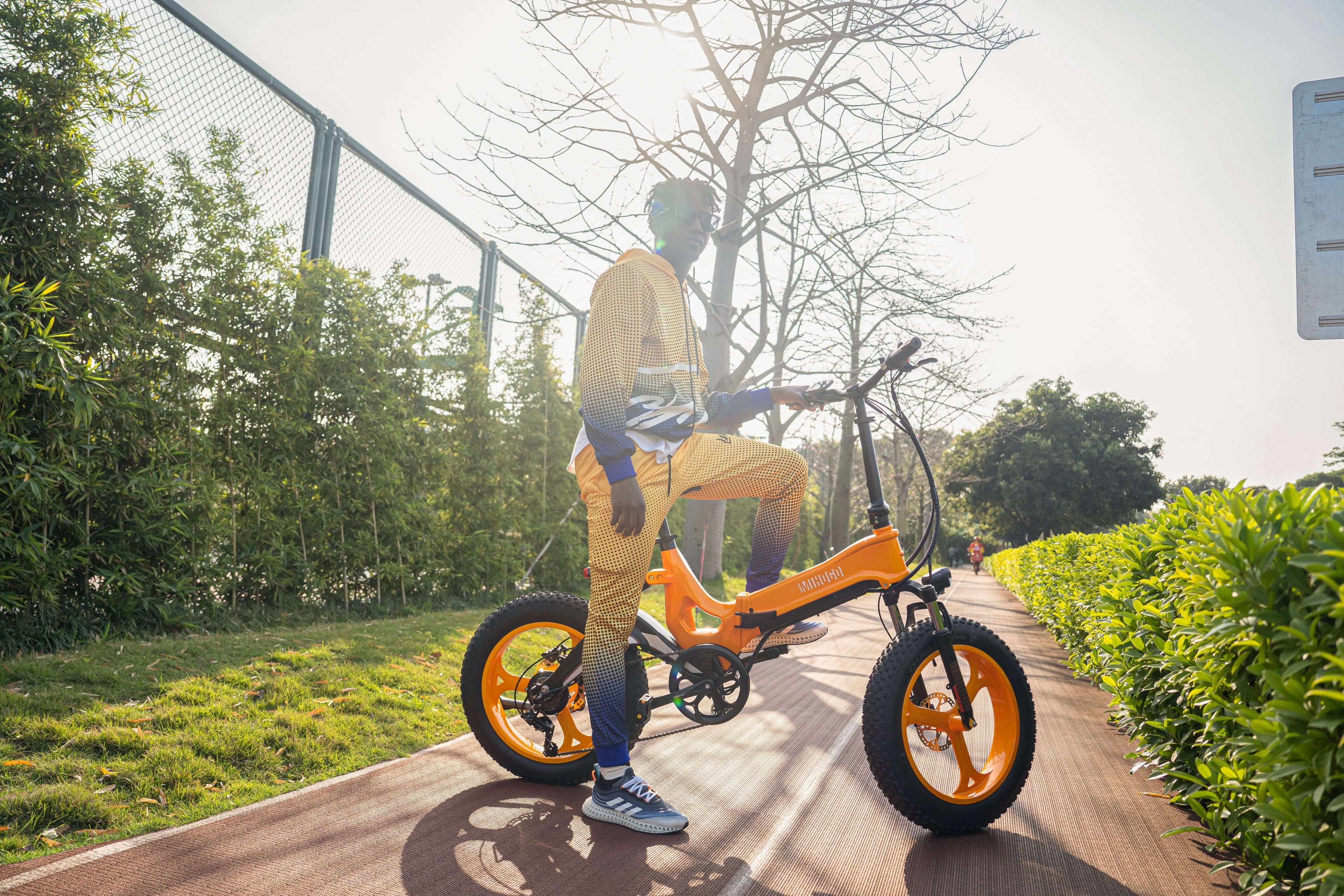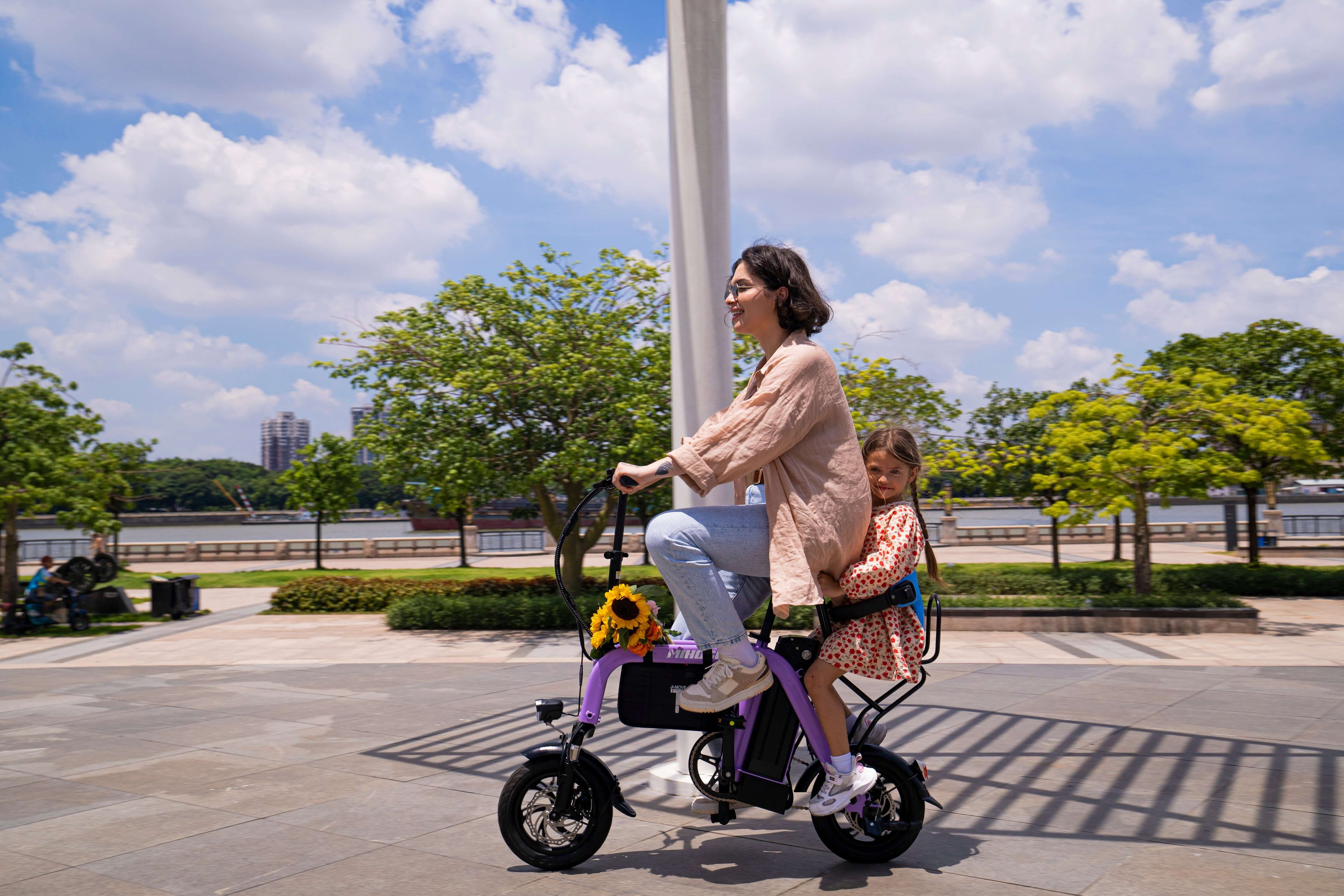E-Bike Rain Riding: What You Need to Know in 2025
Can you ride an e-bike in the rain? Absolutely! Modern e-bikes, including all Mihogo models, are designed with water-resistant components that can handle typical wet weather conditions. However, riding in rain requires specific knowledge and precautions to ensure your safety and protect your investment.
According to recent cycling safety studies, wet roads increase braking distance by up to 40%, making proper technique essential for safe wet weather riding. With the right preparation and understanding of your Mihogo e-bike's capabilities, you can confidently navigate rainy conditions.
Understanding Your Mihogo E-Bike's Weather Resistance
IP Rating Protection Standards
Most modern e-bikes, including Mihogo models, feature water-resistant components rated for outdoor use. The waterproofing of an electric bike is usually indicated by the IP (International Protection) rating, which describes protection levels against dust and water ingress.
Mihogo Models Weather Capability:
- IP54 or higher protection for electrical components
- Sealed motor housings resistant to water spray
- Protected battery compartments designed for outdoor conditions
- Weather-resistant displays that function in rain
Mihogo Model-Specific Rain Riding Recommendations
Mihogo Air750 Max - Premium Carbon Performance
Best Weather Conditions: Light to moderate rain, urban commuting
Rain Riding Strengths: Lightweight carbon frame sheds water effectively, 750W motor provides reliable power in wet conditions
Precautions: Protect carbon fiber components from prolonged moisture exposure, ensure battery connections stay dry
MIHOGO ONE Utility EBIKE - All-Weather Workhorse
Best Weather Conditions: Extended commuting in variable weather
Rain Riding Strengths: Robust construction handles wet conditions well, 167-mile range ensures you reach shelter, utility design accommodates rain gear
Precautions: Check cargo area drainage, secure any transported items against moisture
MIHOGO RX 2.4 - Compact Commuter Solution
Best Weather Conditions: Short-distance urban rain riding
Rain Riding Strengths: Folding capability allows quick indoor storage, compact size easier to maneuver in wet conditions
Precautions: Dry folding mechanisms thoroughly, protect joints from moisture accumulation
Mihogo Mini - Urban Rain Navigation
Best Weather Conditions: Light rain, short trips with shelter access
Rain Riding Strengths: Compact size reduces wind resistance, easy to carry indoors quickly
Precautions: Limited battery range requires planning for wet weather delays, ensure adequate lighting for visibility
Essential Pre-Ride Weather Preparation
Weather Assessment and Planning
Before venturing out on your Mihogo e-bike, conduct a thorough weather evaluation:
Safe Riding Conditions:
- Light rain or drizzle
- Temperatures above 45°F (7°C)
- Wind speeds under 25 mph
- Good visibility (over 100 meters)
Avoid Riding When:
- Wind gusts over 40 mph (64 km/h) can make it difficult to control your bike
- Heavy downpours or thunderstorms
- Temperatures near freezing with precipitation
- Dense fog reducing visibility
Essential Gear for Wet Weather Riding
Visibility Enhancement:
- High-contrast LED lights (front and rear)
- Reflective vest or clothing with retroreflective strips
- Bright, waterproof helmet with visor
- Clear protective eyewear to prevent water obstruction
Weather Protection:
- Waterproof cycling jacket with ventilation
- Water-resistant pants or leg coverings
- Waterproof gloves with grip enhancement
- Shoe covers or waterproof cycling shoes
Advanced Wet Weather Riding Techniques
Braking and Speed Management
It always takes longer than usual when its wet so brake early and brake smoothly to avoid locking up your wheels and skidding. This is especially crucial for e-bikes, which can reach higher speeds than traditional bicycles.
Mihogo-Specific Braking Tips:
- Air750 Max: Use regenerative braking feature to supplement mechanical brakes
- MIHOGO ONE: Account for additional weight when calculating stopping distances
- RX 2.4: Practice controlled braking with folding bike dynamics
- Mihogo Mini: Allow extra distance due to smaller wheel size
Cornering and Maneuvering
Safe Turning Techniques:
- Reduce speed before entering turns
- Keep bike upright to maximize tire contact
- Avoid sudden steering inputs
- try not to lean into corners or ride up gutters and driveways on an angle
Tire Pressure Optimization
Lower Tire Pressure – For better grip on wet roads by reducing pressure 5-10 PSI from normal levels. This increases the tire's contact patch with the road surface, improving traction in wet conditions.
Terrain-Specific Wet Weather Strategies
Urban Commuting (All Mihogo Models)
City Rain Riding Considerations:
- Road markings and painted lines become extremely slippery when wet
- Metal surfaces (manholes, grates, tracks) require extra caution
- Oil and fuel residue creates additional slip hazards
- Puddle depth assessment prevents water damage to electrical components
Navigation Tips:
- Plan routes with bike lanes and protected paths
- Avoid construction zones where debris accumulates
- Use familiar routes to anticipate hazard locations
- Allow 25-50% additional travel time
Mixed Terrain Riding (Air750 Max, MIHOGO ONE)
For longer rides across varied terrain:
- Paved surfaces: Standard wet weather techniques apply
- Light gravel: Reduce tire pressure further, avoid sudden movements
- Bike paths: Watch for leaf accumulation and drainage issues
- Bridge crossings: Extra caution on metal grating surfaces
Short-Distance Urban Trips (RX 2.4, Mihogo Mini)
Quick Trip Strategies:
- Pre-position rain gear for immediate deployment
- Plan short shelter stops for heavy downpours
- Use waterproof bike maintenance techniques for frequent exposure
- Consider indoor storage options along regular routes
Battery and Electrical Protection
Protecting Your Mihogo's Electronics
Component-Specific Care:
- Battery: Remove for indoor storage during extended rain exposure
- Display: Use protective covers designed for your Mihogo model
- Charging ports: Keep covers sealed and dry
- Motor connections: Inspect seals regularly for wear
Post-Ride Maintenance:
- Wipe down all electrical connections
- Dry battery compartment thoroughly
- Check for moisture accumulation in display housing
- Allow complete drying before storage
Safety Protocols and Emergency Procedures
Visibility and Communication
Making Yourself Seen:
- Use daytime running lights even in light rain
- Wear bright, contrasting colors
- Position lights for maximum visibility angles
- Consider additional warning devices for heavy traffic areas
Emergency Preparedness
Rain Riding Emergency Kit:
- Waterproof phone protection
- Emergency contact information
- Basic repair tools in waterproof container
- Warm, dry layer for emergency situations
When to Seek Shelter
Recognize when conditions become unsafe:
- If you can't see more than a few feet ahead, neither can drivers
- Standing water deeper than wheel rim height
- Ice formation on road surfaces
- Equipment malfunction in wet conditions
Post-Ride Care and Maintenance
Immediate Post-Ride Actions
Essential Cleanup Steps:
- Wipe down frame and components with dry cloth
- Remove battery and dry connections
- Check brake function after water exposure
- Inspect tires for embedded debris
- Lubricate chain with wet-weather lubricant
Long-Term Weather Protection
Preventive Maintenance:
- Regular seal inspection and replacement
- Protective coating application for metal components
- Battery care strategies for wet weather exposure
- Professional servicing after heavy rain exposure
Mihogo Model Optimization for Wet Weather
Air750 Max Rain Performance Enhancement
- Carbon frame care: Prevent moisture trapped in frame joints
- High-performance optimization: Maintain aerodynamic efficiency in rain
- Range management: Plan for increased energy consumption in wet conditions
MIHOGO ONE Utility Weather Adaptations
- Cargo protection: Waterproof covers for transported items
- Extended range planning: Account for slower speeds and detours
- Utility accessories: Rain-specific cargo solutions
RX 2.4 Folding Wet Weather Use
- Quick deployment: Practice rapid setup in rain conditions
- Storage transitions: Efficient movement between outdoor and indoor environments
- Joint protection: Prevent moisture in folding mechanisms
Mihogo Mini Urban Rain Navigation
- Compact maneuverability: Navigate around puddles and obstacles
- Indoor transition: Quick shelter access strategies
- Limited range planning: Account for weather-related delays
Building Wet Weather Riding Confidence
Progressive Skill Development
Training Progression:
- Practice in light rain with minimal traffic
- Develop muscle memory for wet weather braking
- Build familiarity with your Mihogo's wet weather handling
- Gradually increase ride complexity and distance
Community and Resources
Connect with experienced wet weather riders:
- Local cycling groups with rain riding experience
- Online forums specific to e-bike wet weather riding
- Urban cycling safety networks for shared knowledge
- Weather-specific riding meetups and training
Conclusion
Riding your Mihogo e-bike in wet weather opens up year-round transportation opportunities while building valuable riding skills. Whether you're commuting on your MIHOGO ONE Utility EBIKE through unpredictable weather or enjoying recreational rides on your Mihogo Air750 Max during light rain, proper preparation and technique ensure safe, enjoyable experiences.
Remember that wet weather riding is a skill that improves with practice. Start with short rides in light rain, gradually building confidence and experience. Your Mihogo e-bike is designed to handle typical weather conditions – with the right knowledge and preparation, you can ride confidently in most wet weather situations.
Key Takeaways:
- All Mihogo models feature weather-resistant components suitable for rain riding
- Proper braking technique and speed management are critical for wet weather safety
- Visibility enhancement through lighting and clothing protects you and others
- Regular maintenance after rain exposure preserves your e-bike's longevity
For optimal wet weather performance, pair these techniques with quality rain gear and maintain your Mihogo e-bike according to manufacturer recommendations.
External Resources:







